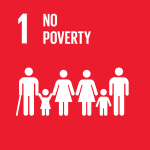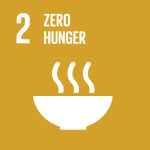54 African leaders highlight the opportunity for a triple dividend: reduced risk, increased resilience and strengthened recovery
By Umberto Labate
Originally published on Inter Press Service
COVID-19 continues to race across the African continent. People are dying, and even more are being pushed into hunger and poverty, in many cases risking to overturn years of development gains.
While the pandemic presents immense challenges for low-income countries, it also presents a critical opportunity to guide investments towards long-term sustainability, and achievement of the Sustainable Development Goals for health, equity and planetary health.
As with any crisis, this too will end. And when it does, countries will have the opportunity – and the responsibility – of building back better, building back greener, and reimagining an economic, social and environmental vision for the continent that puts people and planet first.
“It is imperative that post-COVID-19 stimulus packages integrate short and long term climate impacts as well as unlock significant appropriate technological and financial solution packages, for robust economic recovery and enhanced resilience for the wellbeing of people and ecosystems," said Ambassador Seyni Nafo, Coordinator of the Africa Adaptation Initiative (AAI).
While international support is needed and is being programmed and reprogrammed across the UN system – with UNDP leading the global socio-economic recovery – rebuilding efforts will primarily come from African ingenuity, African resilience, African institutions and African leaders.
Compounding risks
The numbers are staggering. While the pandemic is only now taking root in Africa, there are at least 400,000 confirmed cases, and according to the World Health Organization (WHO), the outbreak is accelerating across the continent.
Add to this the risks of hunger and poverty. Three out of four people on the continent are food insecure. More than 320 million people are without access to safely managed drinking water, and over half the population lack access to any sanitation.
Think about this: 115 people in Africa die every hour from diseases linked to poor sanitation, poor hygiene and contaminated water. That’s over 1 million people in a year.
While this pandemic has already taken hundreds of thousands of lives, there are far greater risks on the horizon for the African people.
Left unchecked, climate change, environmental destruction, rising sea levels, droughts, floods and other environmental risks could trigger mass migration, increase conflict and disrupt, if not reverse, a decade of economic growth.
What the continent needs now are strong institutions, strong policies and even stronger hearts as they come together to build back better from the multiplying effects of these converging crises.
Africa out front
African minds are stepping up to create solutions. Examples of practical and innovative approaches for the immediate response to the pandemic are emerging around the continent. One noteworthy example is the purchase and deployment of Smart Anti-Epidemic Robots to fight against COVID-19 in Rwanda, to support the detection of infections, test patients, and provide other services in hospitals. Other examples include the use of blockchain technology to give online rewards for volunteering, learning and doing good in the fight against COVID-19 in South Africa and the ‘solar for health initiative’, supporting governments to install solar systems in health centers and clinics in rural areas to reach underserved communities.
Africa is leading the way at the political and strategic levels too. Late last month, 54 African leaders endorsed a new policy recommendation outlined in a brief on “Integrated Reponses to Building Climate and Pandemic Resilience in Africa.”
The recommendations include adaptation actions to secure the food supply for vulnerable populations and strengthen the agricultural value chain, increase access to water and sanitation in parallel with efforts to improve water governance, and the need to invest in resilient infrastructure to create jobs. These recommendations result in a triple dividend for African countries: reduced pandemic risk, increased climate resilience and strengthened economic recovery.
The brief was champion by Gabon President Ali Bongo Ondimba, and created in partnership with the Global Commission on Adaptation (GCA) and the Africa Adaptation Initiative (AAI). AAI is an initiative launched by African Heads of State that is aimed at ensuring the continent adapts to the adverse effects of climate change in the immediate, short, medium and longer terms. Something that, as the current pandemic reminds us, require a coordinated and integrated approach.
At last year’s Climate Talks, the European Union announced ramped up support for AAI with a EUR 1 million grant, administered by UNDP. With this catalytical seed money the initiative is now serving as a broker and catalyst to bring together key stakeholders to discuss and enact climate resilient strategies for sustainable development in Africa.
"The impact of climate change on our world is accelerating. Ambitious and coordinated actions are necessary to address this global threat. The EU is placing sustainability criteria at the centre of its recovery policies, both domestically and internationally. The African continent has an enormous potential to adapt and enhance its efforts towards a climate resilient development future, and the EU is a proud supporter of this endeavor,” said Alessandra Sgobbi, Policy Officer at the European Commission – DG Clima.
Food Security and strengthened agricultural value chains
In order to prevent a major food crisis in Africa – the multiplying crises of Covid-19, climate change and conflict could result in 300,000 people starving everyday globally – the policy recommendations look “to secure and strengthen the food supply for vulnerable populations, to strengthen Africa’s smallholder farmers through a proactive gender-based approach, and to support transactions between agricultural value-chain stakeholders to improve farming techniques and enable the purchase of smallholders’ production for commercialization on the market.” These efforts would be supported by digital advisory services. This will both raise incomes and employment opportunities and support the goal to end hunger and poverty by 2030.
Water and sanitation
Climate-smart water resilience in Africa needs to be integrated all the way from watersheds to urban areas. “Water utilities and service providers in particular need to have sustainable and resilient water resources management to ensure the continuity of water supply and to deliver safe and secure water.” A priority policy intervention highlighted in the brief is to “boost access to water and sanitation in parallel with efforts to improve water governance across sectors and countries in the continent. This requires measures to promote solutions that encompass management of ‘natural infrastructure,’ optimize water management to support effective distribution and use of scarce water resources for multiple uses in human settlements, agriculture and industry, and support to enhanced water governance through improved cooperation frameworks within and across countries.”
Jobs and infrastructure
To sustain Africa’s growth, and speed up efforts to end extreme poverty, investment in resilient infrastructure is fundamental. According to the World Bank, Africa needs about US$100 billion a year for the next decade to fill its infrastructure gap. “Economically, the case for technologically advanced, resilient and sustainable infrastructure is clear. Low and middle-income countries alone could see a net benefit of $4.2 trillion from investing in infrastructure that prioritizes future-focused resiliency. That’s a $4 return for every $1 spent. By contrast, investing in ‘business-as-usual’ infrastructure not optimized for resilience only returns $1.5 for every $1 spent.”
The big picture
The international community has moved swiftly to support African countries in responding to the COVID-19 crisis with over $50 billion announced thus far. This is a good start, but only a portion of the funds required to future-proof investments and build long-term resilience.
African institutions, such as AAI, are stepping up to fill this gap. Together with support from the UN system, donors, and global leaders, they are making the case and showing the way for a resilient future.
 About the author
About the author
Umberto Labate is a Portfolio Management Specialist and Technical Advisor working in the ‘Nature, Energy and Climate Team’ of the UNDP Global Policy Network. He supports countries to identify and address developmental risks through integrated interventions, access to climate finance, and coordination with multiple partners, with the ultimate objectives of enhancing climate action and achieving the SDGs.




